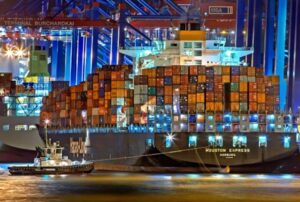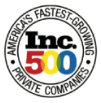
If you’ve had to replace a door hinge, patch drywall, or install new flooring lately, you’ve probably noticed it’s not as cheap—or as fast—as it used to be. From basic tools to building materials, prices are climbing. Why? One of the biggest factors is tariffs.
In recent months, a new wave of tariffs on imported goods especially building supplies and tools has sent shockwaves through the maintenance and facilities world. And if you’re managing a retail space, restaurant, or commercial property, those increases are already showing up in your maintenance budget.
So, what’s going on? And more importantly, what can you do about it?
Let’s break it down.
What Are Tariffs, and Why Do They Matter?
A tariff is essentially a tax on imported goods. Governments use tariffs to protect domestic industries, apply pressure in trade negotiations, or raise revenue. But the ripple effect hits business owners, vendors, and property managers directly in the wallet.
The latest tariffs are especially focused on materials like:
- Steel and aluminum (used in framing, hardware, and fixtures)
- Electrical tools and components
- Ceramic and porcelain tiles
- Plumbing parts and HVAC components
- Lumber and other wood products
These items are all crucial in day-to-day maintenance and repair work—and the price jumps can be significant. For example, a door that cost $300 to replace last year might now cost $450 or more, once you factor in material costs and shipping delays.
How Tariffs Are Affecting Maintenance Work
When we talk about facilities maintenance, we’re not just talking about large-scale remodels. We’re talking about the small stuff—patching drywall, fixing a sink, replacing damaged tile. These are the everyday jobs that keep your business safe, professional, and operational.
Unfortunately, tariffs are hitting all the parts that go into those “small” repairs. Here’s what that means on the ground:
1. Higher Material Costs
Tariffs increase the baseline cost of materials, especially if they come from overseas (which many do). That means your contractor or handyman is paying more—and so are you. Even budget-friendly materials like off-the-shelf floor tiles or door handles have gone up in price.
2. Longer Lead Times
Tariffs often cause vendors to rethink their sourcing. That can lead to supply chain bottlenecks, backorders, or longer shipping times. So, what used to be a one-day job might now take a week—or more—because the parts aren’t readily available.
3. Inconsistent Availability
With rising costs and shifting suppliers, some materials are being discontinued or replaced with lower-quality alternatives. You might find that you can’t get the exact tile to match a broken piece or that your go-to faucet model is now out of stock indefinitely.
4. Tighter Budgets
If you’re working with an annual maintenance budget, you’ve probably already seen the effects. What used to stretch across a dozen service calls might now only cover half. And unplanned repairs—like storm damage or plumbing issues—can blow through your reserves fast.
Why Partnering with RKB Facility Solutions Makes a Difference
When costs go up and materials become harder to find, having the right partner on your side makes all the difference. RKB Facility Solutions supports national brands and local businesses alike with a scalable, strategic approach to facility maintenance.
Here’s how we’re helping our clients manage the impact of tariffs:
Better Buying Power
We purchase tools, hardware, and materials in larger volumes—often directly from manufacturers or wholesalers—which gives us access to better pricing than independent handymen or smaller contractors. That means fewer surprise markups and more stability in your costs.
Established Vendor Network
Because we work across the country, we’ve built strong relationships with a wide network of suppliers. When one item is backordered, we can often source it from a different vendor, region, or alternate brand—saving you time and hassle.
Smart Material Substitutions
When exact matches aren’t available, our experienced team can recommend comparable alternatives that meet your quality and aesthetic standards without driving up your costs.
Preventive Maintenance Strategies
Rather than waiting for something to break, we help our clients get ahead with proactive maintenance schedules. That means fewer emergency repairs, more budget predictability, and less reliance on suddenly expensive or hard-to-find parts.
Fast, Nationwide Response
With technicians and partners across the U.S., we’re ready to respond quickly—whether you’ve got one location or fifty. If a local vendor is tied up with supply issues, we’ve got backup resources to step in and keep your business running smoothly.
Tips to Protect Your Maintenance Budget
Even if tariffs aren’t in your control, how you plan for them is. Here are a few ways to protect your budget and keep your spaces in top shape:
Review and Update Your Budget Quarterly
Don’t wait for your yearly budget review. With prices shifting fast, it’s smart to reassess your maintenance budget every 3–4 months. Look for rising costs in repeat repairs and build in extra buffer where needed.
Bundle Repairs
If you’ve got multiple small jobs in the pipeline, it’s often more cost-effective to bundle them into a single service call. You’ll save on labor and possibly materials if we can source everything at once.
Schedule Off-Peak Work
If a repair isn’t urgent, schedule it during off-peak times. Suppliers may offer better availability and pricing, and service teams have more flexibility (and fewer rush fees).
Invest in Long-Term Fixes
In times like these, it’s smarter to do it right the first time. Avoid patch jobs when a full replacement would last longer and save you money down the road.
Cut Through the Cost Increases with RKB
Tariffs are making even the smallest maintenance jobs more expensive—and that’s not changing anytime soon. But you don’t have to navigate rising costs, delays, or product shortages on your own.
RKB Facility Solutions is here to help you stay ahead. With national reach, strong supplier relationships, and a team that knows how to stretch your maintenance budget without sacrificing quality, we’re the partner you can count on.







